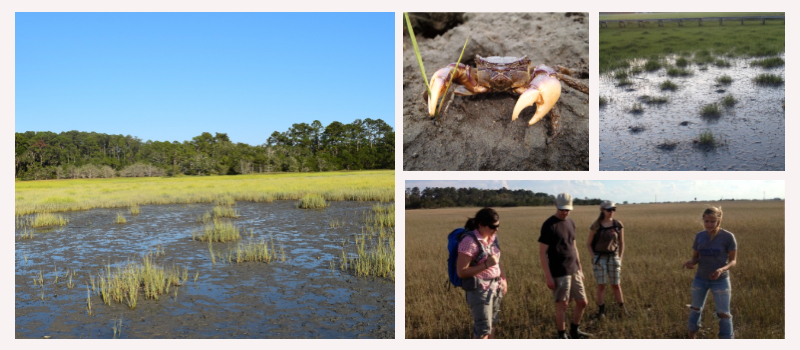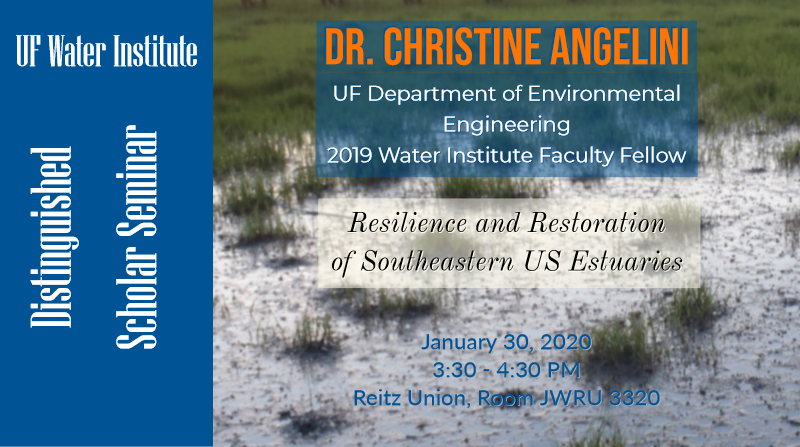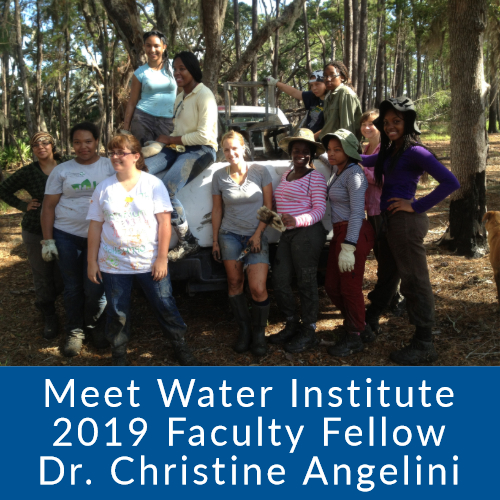Meet Water Institute Faculty Fellow Dr. Christine Angelini
Dr. Christine Angelini started as an Assistant Professor in Environmental Engineering Sciences in 2014. Over the past six years, she has “built a world-class research and teaching program, provided remarkable leadership within the Department, School, College, and University, and also contributed directly to the Water Institute though her service on the Faculty Advisory Committee and as co-PI of the 2017 WI Graduate Fellows program,” said Drs. Kaplan and Hatfield, who nominated her for the Water Institute Faculty Fellowship.
Dr. Angelini was awarded a Water Institute Early Career Fellowship in 2019, which recognizes “outstanding contributions in research, extension, and education that enhance UF’s interdisciplinary communities in water science”. In 2019, Dr. Angelini also received the Coastal Estuarine Research Federation Cronin Award for Early-Career Investigators, recognizing her significant accomplishments as an estuarine scientist in the early stages of career development.
Her research program aims to understand how climate change affects the community structure of aquatic ecosystems and to assess ecosystem resilience to these changes. In a recent study, Dr. Angelini and collaborators provide new evidence that geospatial evolution, structure, and function of salt marshes spanning the southeastern US coastal plain are changing rapidly due to sea-level rise and the emergence of a new keystone species, the once innocuous grazer marsh crab (Sesarma reticulatum). Their research suggests that sea level rise is amplifying Sesarma‘s sediment excavation and grazing impacts, allowing it to have a similar function as primary habitat-forming foundation species in terms of defining the ecosystem’s structure, function and response to rising sea levels.
Using the insights from her research, Dr. Angelini works with natural resource managers to improve restoration design and conservation strategies

Do not miss the opportunity to learn more about Dr. Angelini’s research during her Water Institute Distinguished Scholar Seminar on January 30!



